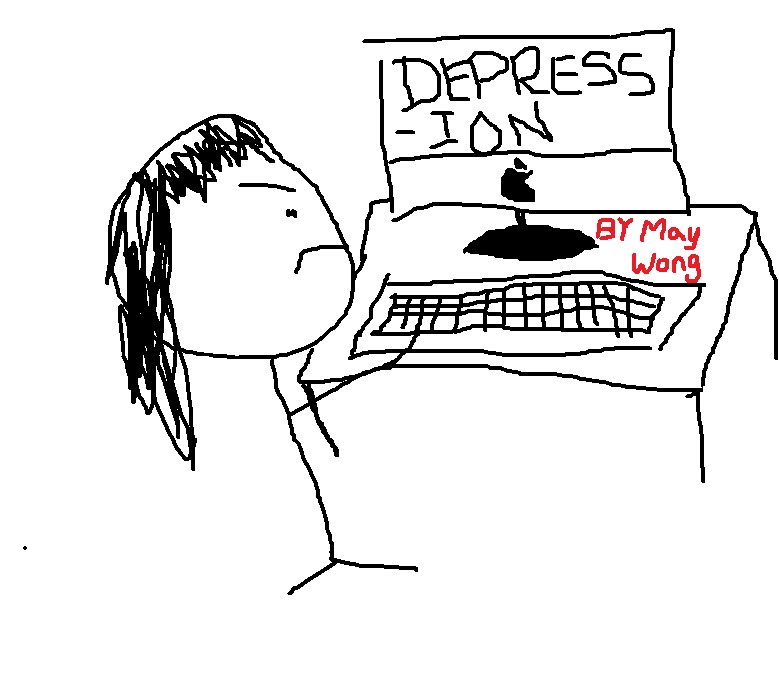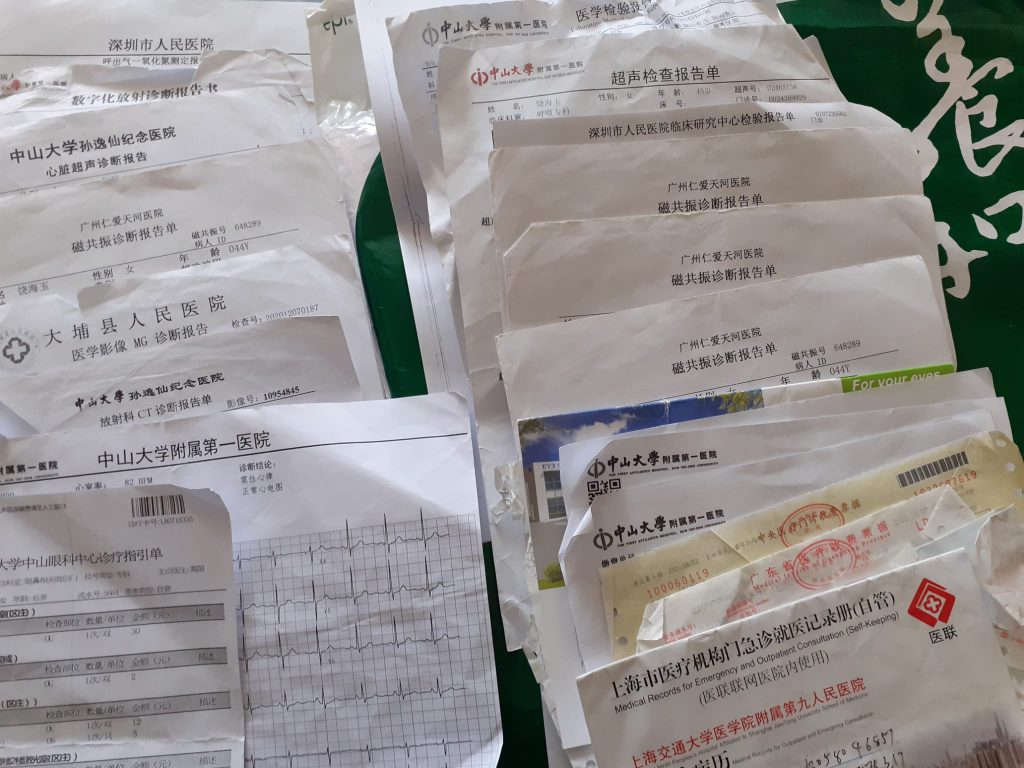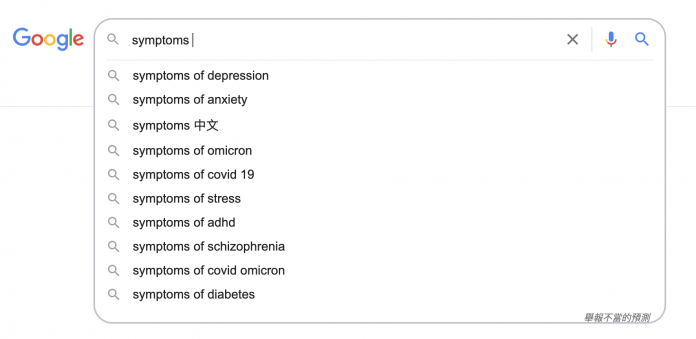Online self-diagnosis might lead to unnecessary stress.
Christine Tang
May Wong* has been searching for medical information and doing self-diagnosis since 2016 because she suspects that she has depression. She also looks for other health information online and does online diagnostic tests whenever she has health concerns.
“You may describe my personality as anxious and pessimistic. The more health information I read, the more I feel anxious,” the 18-year-old student says.
The student has always struggled with peer relationships, leading to her depressive mood.
“I sometimes spend around five to six hours a day looking for health information like different forms of clinical depression and diagnostic criteria, and I spend one or two hours looking for health information three times a week,” Wong says.
“I have done most of the tests about depression I find on Google since 2016. I think they (the results of high possibility of having depression) are credible,” she adds.
Wong’s symptoms of sickness include abnormal menstruation, suicidal ideation, anxiety and self-abasement.
Despite having those symptoms, Wong prefers diagnosing herself on her own to seeking medical consultation from professionals.
“I do not like chatting with strangers about my privacy. I do not think my personal matters are good stuff that I can tell others. Also, I am worried that my family will be upset if I am really diagnosed with depression,” she explains.
“I do not like chatting with strangers about my privacy. I do not think my personal matters are good stuff that I can tell others.”

Due to her doubts about depression symptoms, some of her friends have kept a distance from her instead of caring for her.
Until now, she still has not sought help from professionals and is still checking information about depression online.
Rao Haiyu, who underwent plastic nose surgery in a small private clinic in China in 1993, shares similar experiences of conducting online searches about symptoms of diseases and making self-diagnosing.
“The upper part of my nose started feeling itchy in 2019 and I feared that I might be suffering from serious diseases, so I started Googling my symptoms,” she says.
In 2019, she started doing Internet searches about the long-term side effects of nose jobs. She learnt that some kinds of injectable soft-tissue fillers may lead to serious complications like foreign body reactions from the Google search.
She has then attributed her itchiness to complications of the nose job.
“I believe there is something wrong in my nose because of the surgery, and I learnt from the Internet search that the unknown harmful fillers injected may lead to blindness if they migrate,” Rao says.
“I do not trust doctors I consulted who say I am alright because I think they are not knowledgeable. There are not many cosmetic surgery specialists in Hong Kong and most are not experienced enough to make the correct diagnosis and perform suitable removal surgery,” Rao adds.
The fear generated from her Google search made her do numerous visits to doctors, because she trusts search results more than doctors’ diagnoses.
She travelled back and forth from Hong Kong to the Mainland from 2019 to 2021, in hope of having removal surgery performed by specialists. She left her family in the city where her eight-year-old son stayed with his dad.
Until March 2022, she has seen more than 15 doctors in Shanghai, Beijing and Guangdong and over five doctors in Hong Kong.
“I do not think I am mentally ill. I just care about my health,” Rao says.

Rao Haiyu)
Dr. Greg Mak Kai-lok, an honorary consultant psychiatrist at Gleneagles Hospital Hong Kong, thinks that information overload makes it hard to tell right from wrong when patients conduct online self-diagnosis.
He believes people with anxious temperaments and health concerns are particularly vulnerable to self-diagnosis. As some fields are especially prone to social stigma, like the field of mental health, patients may thus be less willing to seek help.
“If their health concern becomes overwhelming after doing online searches, they may feel more stressed, resulting in physical symptoms. This creates a vicious cycle of mental and physical health influencing each other,” the private practising psychiatrist says.
“If their health concern becomes overwhelming after doing online searches, they may feel more stressed, resulting in physical symptoms.”
Mak recommends getting a proper diagnosis from doctors instead of doing self-diagnosis. Even when they consult a doctor, they may not get diagnosed with any illnesses. One does not have to be ill to seek professional advice.
“When people make their own diagnosis based on information they find online, they might add their subjective feelings. If they believe they are depressed, they may fill in questionnaires in a way that they can test positive, so the accuracy of test outcomes is in question,” Mak says.
“Also, there is no empirical evidence and validation for online tests,” the psychiatrist adds.
*Name changed at interviewee’s request
Edited by Kajal Aidasani
Sub-edited by Winkie Ng







































